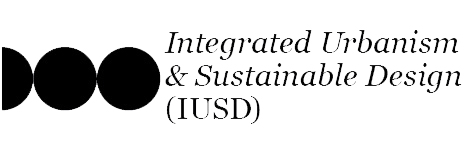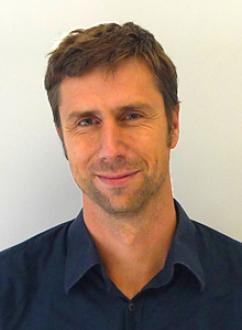
Dipl.-Ing. Daniel Schönle

Daniel Schoenle studied architecture and urban planning at Universitaet Stuttgart, Germany. He graduated in 2002 with a thesis on urban development in Paris (Prof. Wolfgang Schwinge, Institut Grundlagen moderner Architektur und Entwerfen). During his studies, he worked for ecosystems in India, ORplan in Stuttgart and Manderscheid Architekten in Rottenburg, Germany. Two years after graduating he was self-employed and freelanced for Pantle Architekten in Ludwigsburg. From 2004 to 2007, he worked for bueroschneidermeyer in Stuttgart and was mainly responsible for urban and landscape planning projects. Already since 2003, he has successfully taken part in competitions together with various collaborators. He spent the summer of 2007 in Peking and, together with Universal Architecture Studio (today: TAO), worked out development concepts for Chinese cities. Since then, he engages in interdisciplinary cooperation with various national and international offices and partners. Since 2008, he is listed as an Independent Architect and Urban Planner and owns a practice in Stuttgart. In addition to practical planning, Daniel Schoenle engages in research and teaching at various universities. He lectured at Universitaet Stuttgart, at Stuttgart State Academy of Art and Design, and at Biberach University of Applied Sciences (Prof. Ute Meyer). From March 2010 to August 2011, he was assistant professor at the Institute of Urban Planning at Universitaet Stuttgart, subdivision local and regional planning, Prof. Johann Jessen. Daniel is teaching in the IUSD module "Integrated Research and Design" at the University of Stuttgart.
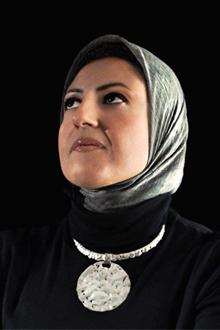
Dr.-Ing Mona Helmy

Mona Helmy is an architect, urbanist, and educator. She received her Doctoral degree in Architecture and City Planning from University of Stuttgart. She holds a Master's degree in Urban Design and a Bachelor of Architecture from Ain Shams University “ASU”, Cairo, Egypt. She is an Assistant professor of Architecture and Urbanism at Dar Al-Hekma University (DAHU), Jeddah, KSA. She was the Founding Chair of the Architecture Department at DAHU. She has taught numerous courses, conducted several design studios and collaborative workshops on a wide variety of topics. Her taught courses range from sustainable urbanism, city branding, affordable housing and green architecture in the built environment. Since 2010, she has been a research fellow at the Städtebau-Institut “SI” of the University of Stuttgart. Her current research studies focus on “Creative Public Space” and “City Imaging and Branding”. Since 2014, Mona is teaching an elective Module “City Branding” at the IUSD, University of Stuttgart. As a consultant and advisor in urban design, city branding, and Contemporary Arab Gulf urbanism, she has contributed to a number of significant planning projects and specialized planning and design studies. She is a member of a number of scientific committees in international conferences, symposia, and refereed.
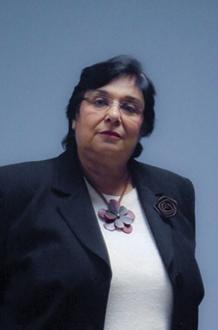
Prof. Dr. Shafak El Wakil

Shafak El Wakil received her B.Sc. and MSc in 1971 and 1975 respectively from Ain Shams University. She obtained her PhD from Stuttgart University in 1980. Prof. El Wakil has been academically active since 1971, ending with being the head of the urban planning department (2001-2007). She currently holds the position of Emeritus professor in the department. Professor El wakil has many fields of interest including, strategic urban and regional planning, climatology and environment as well as architecture. Her interests are reflected in her professional career through the national projects she conducted and headed in her office such as the new city of Assiut and the New city of Toshka. She is also an active consultant to the Ministry of Housing and was the former adviser of the Minister of Environment in the early 2000s, where she represented the Ministry in several International events in North Africa and Europe. She has been awarded the Ain Shams University award for arts and literature for the year 2012. She has supervised and guided many MSc and PhD dissertations. In 2012/2013 and she held the course of upgrading informal settlements within the IUSD Master Program in Cairo.
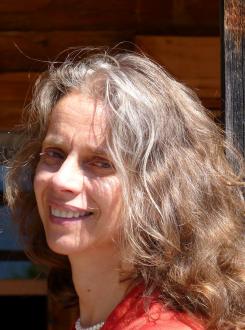
Dipl.-Ing. Dominique Gauzin-Müller

Dominique Gauzin-Müller is a French architect, author and journalist living in Stuttgart since 1986 together with her German husband and their two children. She collaborates as author and translator with a few editors and works regularly with many European reviews. She is redactor in chief of EcologiK, a French magazine about sustainable architecture and urbanism. She already wrote seven books, mostly published by Editions du Moniteur, Paris, and translated in several languages: 1990 "La construction en bois", 1999 "Construire avec le bois, 2001 "L'architecture écologique"(in English “Sustainable architecture and urbanism” by Birkhäuser), 2003 "25 maisons en bois" (in English “Wood Houses” by Birkhäuser), 2005 "25 maisons écologiques" (in English “Sustainable living” by Birkhäuser), 2009 “L’architecture écologique du Vorarlberg”. Dominique Gauzin-Müller shares her passion for sustainability in architecture and urbanism through conferences and workshops all over the world. She teaches at the Ecole Nationale Supérieure d'Architecture in Strasbourg and at the University of Stuttgart. Since 2011 Dominique is teaching in the Core Module “Sustainable Architecture” of the IUSD at the University of Stuttgart.
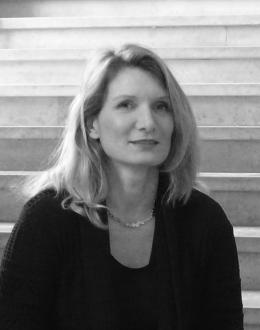
Victoria von Gaudecker

Victoria von Gaudecker has been studying architecture at the Bauhaus University in Weimar, the Politecnico in Milano, Italy and the Virginia Tech University in Alexandria, USA. In 1997 she graduated at the Bauhaus University Weimar, in the very same year Victoria founded her own architectural firm. From 2000 to 2005 she was working as project manager for the atelier of Adolf Krischanitz in Vienna, Austria. During her engagement she was responsible for various projects in urban planning and architecture. Together with Katharina Leuschner Victoria founded the Munich-based architectural office Leuschner von Gaudecker Architekten in 2005. The work of the office is characterized by a very specific approach in search of precise volumes, moods and atmospheres, which led to the nomination for the young talents award of the City of Munich in 2014. Victoria has been teaching at the institute for public building and design of Prof. Arno Lederer at the University of Stuttgart from 2005 to 2014. In the past years, her teaching focus was on design-built projects in South Africa and Peru engaging with vernacular architecture and pursuing a social and ecological approach. Since 2014 Victoria is teaching in the Core Module “Sustainable Architecture” of the IUSD at the University of Stuttgart.
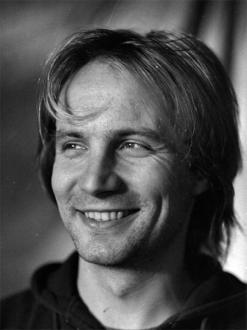
Dr.-Ing. Ferdinand Ludwig

Ferdinand Ludwig is a pioneering architect in the field of “Living Plant Constructions” (Baubotanik). In the recent years he designed and realized highly regarded projects that combine growth processes of living plants with an engineering approach. In his PhD-studies, he develops multiple horticultural construction techniques and analysed botanical rules of growth to deduce construction rules for living plant constructions. In 2007 he was one of the co-founders of the “Research Group Baubotanik” at the Institute of Architectural Theory at the University of Stuttgart (www.baubotanik.org/en). Since that time he organized different workshops and hold many lectures on Living Plant Constructions at the University of Stuttgart and worldwide. Since 2011 Ferdinand is teaching in the Elective “Designing with growth” of the IUSD at the University of Stuttgart.
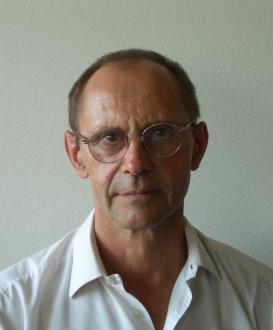
Dr.-Ing. Wolf Reuter

Study of Architecture in Stuttgart and University of California, Berkeley (1971Master) Social Science, Stuttgart, 1969/70; Systems Research, Heidelberg, 1972-81 (Environmental Planning); Doctor 1977; 1982 IGP, Stuttgart University. Habilitation,1988. A.pl.Professor for Design Methods and – Theories, 1995.Interim Director of IGP 1990-92; Interim Professorship for Design Theory at the Faculty for Industrial Design, Essen, 1993; Own Architecture Office 1989-98; Institute for Housing and Design at Stuttgart as Professor for Design Methods, 1998 – present. Guest Professor at University for Industrial Design, Schwäbisch Gmünd, 1999/2000 and at Chung Yuan University in Taiwan, 2003. Since 2006 until now Guest Professor at Tongji University, Shanghai. Research and teaching mainly in the fields of Theories and Methods of Design and Planning, Strategies of Urban Planning, power in architecture and planning, knowledge of architects and planners, the role of politics in planning, theory and methods and tools of argumentation in design and planning. Various publications in the named areas. Since 2012 Prof. Reuter is teaching in the IUSD Core Qualification Module “Master Thesis Exposé” at the University of Stuttgart.
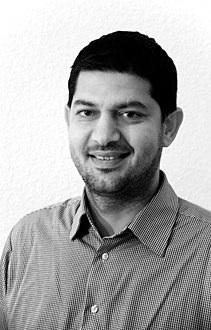
Dr. Hassan ElMouehli

He is an urban planner, designer and architect. After obtaining his B.Sc. 1999, and his M.Sc. degree 2006 in Architecture from Cairo University with a research on culture and architectural programming in the context of urban development. He holds a PhD in Architecture-International urbanism from the Berlin Technical University - Habitat Unit, Germany (DAAD scholarship 2009-2014). His PhD research title is: “Culture and informal urban development: A case study of Cairo’s informal settlements”. With a wide experience in Integrated Urban Development in the global south cities, his research interest focuses on: studying the people-urban space relations, Culture understanding in urban development context, appropriate urban planning instruments and participative processes, analysis of informal processes within Informal settlements and strategies for informal settlements upgrading. He has been invited as a guest lecturer in several master programs (e.g. Urban management, urban design-TU Berlin). In addition, he participated as an expert in several international workshops and seminars in different cities in Germany, Egypt, India, and Tanzania. Currently he works as a research associate at the Habitat Unit, Berlin Technical university, in partnership with IUSD-Cairo, Ain Shams University on the research project: Development Priorities in Informal Areas: ?Planning, Realization and Local Perceptions (DEVEPER). He is currently invited by the IUSD- Cairo to co-lecture at the ICS (integrated case study) module, WS014, working on an informal area in Cairo. He is also involved in advising the students at TU Berlin Urban development master program at Campus EL-Gouna in a semester project that deals with “informal settlement” in Hurghada city.
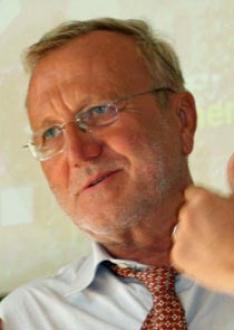
Dipl.-Ing. Wolfgang Mayer

Architect Wolfgang Mayer was educated at Innsbruck University and Stuttgart University (Dipl.Ing. 1974) He worked as a scientific member of the German Institute of Archaeology, Egypt (1975 – 1981), responsible of several excavations and for the reconstruction of the Satet Temples at Aswan, Elephantine. At that time he was a member of the UNESCO team for the restoration of medieval Cairo. 1981 - 1991 he worked as field Conservator at the Department of Conservation, Baden-Württemberg, responsible of the history of construction and art. He continued as senior Conservator and head of the department for the protection of historic monuments and historic town planning at the City of Stuttgart. All that time he was lecturing at Stuttgart University Conservation and Preservation of Monuments and Architectural Design in Historical Areas. In 1998 - 2005 he was lecturing at Cairo University as Visiting Professor and worked as a consultant, Project coordinator and researcher for the German Archaeological Institute, the GIZ and the Aga Khan Foundation, Al Azhar project. In 2005 he took over the Cairo office of Hanns-Seidel-Foundation, Egypt, working on the field of participatory urban planning, environment, gender and human rights. Many programs were in cooperation with Goethe Institute, DAAD, Cairo University and GIZ. Since 2012 he is working as lecturer in the international Master Program “Integrated Urbanism and Sustainable Design IUSD” at Stuttgart University and as a freelancing consultant.
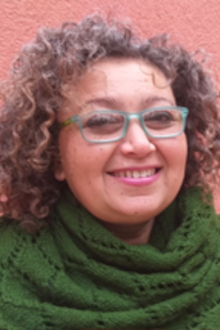
May Al-Ibrashy

May Al-Ibrashy is a licensed architectural engineer with close to 30 years of field experience in conservation and heritage management in Historic Cairo. She holds a BSc in Architectural Engineering from Ain Shams University, an MA in Art, Architecture and Archaeology and a PhD in Archaeology from the School of Oriental and African Studies, the University of London. She is currently founder and chair of Megawra-Built Environment Collective, a twin institution consisting of Egyptian NGO and consultancy working on issues of the built environment. She coordinates Athar Lina, an initiative run by Megawra-BEC in partnership with the Egyptian Ministry of Tourism and Antiquities. Athar Lina conceives of the heritage as a driver for community development and as such works on heritage conservation and rehabilitation, heritage industries and education and urban revitalization in al-Khalifa. Al-Ibrashy is also adjunct lecturer of architecture at the American University in Cairo and at Cairo University.
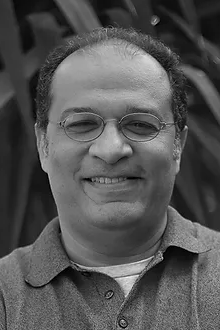
Kareem Ibrahim

Kareem Ibrahim is an Egyptian architect and urban researcher who graduated from Cairo University in 1995. In 1997, he worked on UNDP’s Historic Cairo Rehabilitation Project. He then worked for Aga Khan Cultural Services-Egypt as the Built Environment Coordinator (1997-2010) of the Darb al‑Ahmar Project, one of Cairo’s most ambitious urban revitalization programs. Between 2010 and 2017, he worked as Senior Development Manager for Al-Futtaim Group Real Estate - one of Cairo's largest real estate development projects.
He also worked as a senior expert with a range of international development agencies, including UNESCO, UNHCR, UN Women, AFD, EIB, GIZ, World Bank, USAID, and the British Museum to develop and implement various projects in areas of urban conservation and revitalization, participatory urban development, upgrading of informal areas, gender-sensitive urban design, placemaking, and development of urban policies.
In 2018, he received the Egyptian State Award for architecture (design and building for local communities in informal areas.) He was also selected as a member of the Master Jury of the 2019 cycle of the prestigious Aga Khan Award for Architecture.
Additionally, he is one of the four founding partners and CEO of Takween Integrated Community Development, a Company now celebrating over 10 years in business.
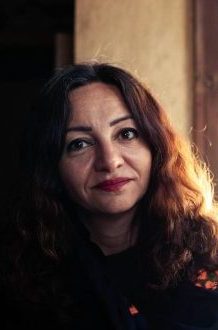
Heba Safey Eldeen

Professor of Architecture and Urban Design, Vice Dean for PostGraduate Studies and Scientific Research, Faculty of Engineering Science, Misr International University (MIU) and adjunct Faculty; Departments of Arts, Graphic Design and Architectural Engineering and School of Science and Engineering, American University in Cairo (AUC). Part-timer, Post Graduate Studies, Department of Architecture, Arab Academy for Science Technology and Maritime Transport (AASTMT). Member, International Ranking Committee, Scientific Research Academy, Ministry of Higher Education and Scientific Research. Member; Global Centre of Spatial Methods for Urban Sustainability (GCSMUS) and SEED Project Towards Equitable Learning Curricula in Schools of Urban Planning and Design, DAAD (German Academic Exchange Service). Co-director; Architecture and Children Work Programme, International Union of Architects (UIA). Director; House of Egyptian Architecture, Cultural Development Fund, ministry of Culture. Supervised and examined over 50 Masters and Ph.D. theses locally and internationally. Published more than 40 refereed international scientific researches. Contributed in, collectively and individually 10 published international books and book chapters, in addition to numerous articles in renowned local and international magazines. Member; Architecture Committee- Supreme Council for Culture, Ministry of Culture, Egyptian Society for Culture Development, Society of Egyptian Architects and International Association for Aesthetics (IAA). Founder; Built Environment Education Lab (BEE.Egypt) “Architecture and Children-Egypt”; Introduces architecture, heritage, and sustainability to children and teens through participatory design workshops, walkthroughs, trips and bootcamps in Egypt and worldwide. Joined and presented in more than 30 exhibitions, symposia and colloquia around the world. Former expert, Real City Lab Project, Faculty of Fine Arts - Technical University of Berlin (TUB). Former member, Technical Committee for Developing Educational Curricula and Programs, Supreme Council for Universities. Former editor, author, and translator of local and international architectural magazines. Jury in local and international architectural awards and competitions.
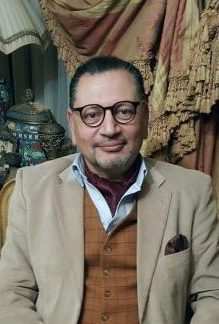
Prof. Mohammad H. Refaat

Mohammad H. Refaat graduated from the faculty of Urban & Regional planning Cairo University (Hons 1989). He was appointed as a teaching assistant and later was awarded a Chevenning scholarship to obtain his PhD in Landscape Architecture from Edinburgh University, UK (1995) with a thesis on " The Egyptian Landscape and Tourism a Study of the Egyptian Red Sea Coast Landscape Planning Process".
From 1995 till 2014 he acted as an assistant and associate professor at Cairo University teaching and conducting the Landscape Planning, Landscape Architecture, Urban Landscape and Sustainable Landscape ecology courses on both levels under and post graduate. At present, he holds the chair of a Professor of Landscape Architecture at the Faculty of Urban & Regional Planning, Cairo University, as well as Head of Urban Landscape Design Department, as well as the Director of The Center of URBAF (Center for African Urban Development . His research interests include landscape planning, landscape design, sustainable tourism, urban parks and eco-parks, waterfronts cultural landscapes. He has published several papers in the International Journal of Development and Sustainability, the International Journal of education & Research, Journal of Urban Research. In addition to academia, he is the founder of the Landscape architecture and planning firm NATURE since 2005. He designed and supervised several landscape planning & design projects in Egypt and the Middle East,(in cooperation with several international firms such as HOK, WAG, 360 and Edge), some of these projects are the city of Khartoum Sudan, Water front landscape, the Olympic City in Basra, Iraq, the water front development of Aseer, KSA, Abha, Tabouk, Najran, KSA Airports, Salalah at Oman, halab, Syria. Domestically, he designed several tourist resorts along the Red Sea coast as well as some public parks, clubs, residential compounds, streetscapes in Cairo. Also, he has worked as a consultant for the World Bank (Cairo, Egypt) in the Red Sea Sustainable Tourism Projects, and the Tourism development Authority (TDA), the Global Environmental Fund (GEF), and The Ministry of Environmental Affairs (EEAA).He is also, an athlete a retired national handball player, and currently a Board member at the Federation and participated as an LOC of the World Cup Egypt 2021.
External Experts

Dipl.-Ing. Daniel Schönle

Daniel Schoenle studied architecture and urban planning at Universitaet Stuttgart, Germany. He graduated in 2002 with a thesis on urban development in Paris (Prof. Wolfgang Schwinge, Institut Grundlagen moderner Architektur und Entwerfen). During his studies, he worked for ecosystems in India, ORplan in Stuttgart and Manderscheid Architekten in Rottenburg, Germany. Two years after graduating he was self-employed and freelanced for Pantle Architekten in Ludwigsburg. From 2004 to 2007, he worked for bueroschneidermeyer in Stuttgart and was mainly responsible for urban and landscape planning projects. Already since 2003, he has successfully taken part in competitions together with various collaborators. He spent the summer of 2007 in Peking and, together with Universal Architecture Studio (today: TAO), worked out development concepts for Chinese cities. Since then, he engages in interdisciplinary cooperation with various national and international offices and partners. Since 2008, he is listed as an Independent Architect and Urban Planner and owns a practice in Stuttgart. In addition to practical planning, Daniel Schoenle engages in research and teaching at various universities. He lectured at Universitaet Stuttgart, at Stuttgart State Academy of Art and Design, and at Biberach University of Applied Sciences (Prof. Ute Meyer). From March 2010 to August 2011, he was assistant professor at the Institute of Urban Planning at Universitaet Stuttgart, subdivision local and regional planning, Prof. Johann Jessen. Daniel is teaching in the IUSD module "Integrated Research and Design" at the University of Stuttgart.

Dr.-Ing Mona Helmy

Mona Helmy is an architect, urbanist, and educator. She received her Doctoral degree in Architecture and City Planning from University of Stuttgart. She holds a Master's degree in Urban Design and a Bachelor of Architecture from Ain Shams University “ASU”, Cairo, Egypt. She is an Assistant professor of Architecture and Urbanism at Dar Al-Hekma University (DAHU), Jeddah, KSA. She was the Founding Chair of the Architecture Department at DAHU. She has taught numerous courses, conducted several design studios and collaborative workshops on a wide variety of topics. Her taught courses range from sustainable urbanism, city branding, affordable housing and green architecture in the built environment. Since 2010, she has been a research fellow at the Städtebau-Institut “SI” of the University of Stuttgart. Her current research studies focus on “Creative Public Space” and “City Imaging and Branding”. Since 2014, Mona is teaching an elective Module “City Branding” at the IUSD, University of Stuttgart. As a consultant and advisor in urban design, city branding, and Contemporary Arab Gulf urbanism, she has contributed to a number of significant planning projects and specialized planning and design studies. She is a member of a number of scientific committees in international conferences, symposia, and refereed.

Prof. Dr. Shafak El Wakil

Shafak El Wakil received her B.Sc. and MSc in 1971 and 1975 respectively from Ain Shams University. She obtained her PhD from Stuttgart University in 1980. Prof. El Wakil has been academically active since 1971, ending with being the head of the urban planning department (2001-2007). She currently holds the position of Emeritus professor in the department. Professor El wakil has many fields of interest including, strategic urban and regional planning, climatology and environment as well as architecture. Her interests are reflected in her professional career through the national projects she conducted and headed in her office such as the new city of Assiut and the New city of Toshka. She is also an active consultant to the Ministry of Housing and was the former adviser of the Minister of Environment in the early 2000s, where she represented the Ministry in several International events in North Africa and Europe. She has been awarded the Ain Shams University award for arts and literature for the year 2012. She has supervised and guided many MSc and PhD dissertations. In 2012/2013 and she held the course of upgrading informal settlements within the IUSD Master Program in Cairo.

Dipl.-Ing. Dominique Gauzin-Müller

Dominique Gauzin-Müller is a French architect, author and journalist living in Stuttgart since 1986 together with her German husband and their two children. She collaborates as author and translator with a few editors and works regularly with many European reviews. She is redactor in chief of EcologiK, a French magazine about sustainable architecture and urbanism. She already wrote seven books, mostly published by Editions du Moniteur, Paris, and translated in several languages: 1990 "La construction en bois", 1999 "Construire avec le bois, 2001 "L'architecture écologique"(in English “Sustainable architecture and urbanism” by Birkhäuser), 2003 "25 maisons en bois" (in English “Wood Houses” by Birkhäuser), 2005 "25 maisons écologiques" (in English “Sustainable living” by Birkhäuser), 2009 “L’architecture écologique du Vorarlberg”. Dominique Gauzin-Müller shares her passion for sustainability in architecture and urbanism through conferences and workshops all over the world. She teaches at the Ecole Nationale Supérieure d'Architecture in Strasbourg and at the University of Stuttgart. Since 2011 Dominique is teaching in the Core Module “Sustainable Architecture” of the IUSD at the University of Stuttgart.

Victoria von Gaudecker

Victoria von Gaudecker has been studying architecture at the Bauhaus University in Weimar, the Politecnico in Milano, Italy and the Virginia Tech University in Alexandria, USA. In 1997 she graduated at the Bauhaus University Weimar, in the very same year Victoria founded her own architectural firm. From 2000 to 2005 she was working as project manager for the atelier of Adolf Krischanitz in Vienna, Austria. During her engagement she was responsible for various projects in urban planning and architecture. Together with Katharina Leuschner Victoria founded the Munich-based architectural office Leuschner von Gaudecker Architekten in 2005. The work of the office is characterized by a very specific approach in search of precise volumes, moods and atmospheres, which led to the nomination for the young talents award of the City of Munich in 2014. Victoria has been teaching at the institute for public building and design of Prof. Arno Lederer at the University of Stuttgart from 2005 to 2014. In the past years, her teaching focus was on design-built projects in South Africa and Peru engaging with vernacular architecture and pursuing a social and ecological approach. Since 2014 Victoria is teaching in the Core Module “Sustainable Architecture” of the IUSD at the University of Stuttgart.

Dr.-Ing. Ferdinand Ludwig

Ferdinand Ludwig is a pioneering architect in the field of “Living Plant Constructions” (Baubotanik). In the recent years he designed and realized highly regarded projects that combine growth processes of living plants with an engineering approach. In his PhD-studies, he develops multiple horticultural construction techniques and analysed botanical rules of growth to deduce construction rules for living plant constructions. In 2007 he was one of the co-founders of the “Research Group Baubotanik” at the Institute of Architectural Theory at the University of Stuttgart (www.baubotanik.org/en). Since that time he organized different workshops and hold many lectures on Living Plant Constructions at the University of Stuttgart and worldwide. Since 2011 Ferdinand is teaching in the Elective “Designing with growth” of the IUSD at the University of Stuttgart.

Dr.-Ing. Wolf Reuter

Study of Architecture in Stuttgart and University of California, Berkeley (1971Master) Social Science, Stuttgart, 1969/70; Systems Research, Heidelberg, 1972-81 (Environmental Planning); Doctor 1977; 1982 IGP, Stuttgart University. Habilitation,1988. A.pl.Professor for Design Methods and – Theories, 1995.Interim Director of IGP 1990-92; Interim Professorship for Design Theory at the Faculty for Industrial Design, Essen, 1993; Own Architecture Office 1989-98; Institute for Housing and Design at Stuttgart as Professor for Design Methods, 1998 – present. Guest Professor at University for Industrial Design, Schwäbisch Gmünd, 1999/2000 and at Chung Yuan University in Taiwan, 2003. Since 2006 until now Guest Professor at Tongji University, Shanghai. Research and teaching mainly in the fields of Theories and Methods of Design and Planning, Strategies of Urban Planning, power in architecture and planning, knowledge of architects and planners, the role of politics in planning, theory and methods and tools of argumentation in design and planning. Various publications in the named areas. Since 2012 Prof. Reuter is teaching in the IUSD Core Qualification Module “Master Thesis Exposé” at the University of Stuttgart.

Dr. Hassan ElMouehli

He is an urban planner, designer and architect. After obtaining his B.Sc. 1999, and his M.Sc. degree 2006 in Architecture from Cairo University with a research on culture and architectural programming in the context of urban development. He holds a PhD in Architecture-International urbanism from the Berlin Technical University - Habitat Unit, Germany (DAAD scholarship 2009-2014). His PhD research title is: “Culture and informal urban development: A case study of Cairo’s informal settlements”. With a wide experience in Integrated Urban Development in the global south cities, his research interest focuses on: studying the people-urban space relations, Culture understanding in urban development context, appropriate urban planning instruments and participative processes, analysis of informal processes within Informal settlements and strategies for informal settlements upgrading. He has been invited as a guest lecturer in several master programs (e.g. Urban management, urban design-TU Berlin). In addition, he participated as an expert in several international workshops and seminars in different cities in Germany, Egypt, India, and Tanzania. Currently he works as a research associate at the Habitat Unit, Berlin Technical university, in partnership with IUSD-Cairo, Ain Shams University on the research project: Development Priorities in Informal Areas: ?Planning, Realization and Local Perceptions (DEVEPER). He is currently invited by the IUSD- Cairo to co-lecture at the ICS (integrated case study) module, WS014, working on an informal area in Cairo. He is also involved in advising the students at TU Berlin Urban development master program at Campus EL-Gouna in a semester project that deals with “informal settlement” in Hurghada city.

Dipl.-Ing. Wolfgang Mayer

Architect Wolfgang Mayer was educated at Innsbruck University and Stuttgart University (Dipl.Ing. 1974) He worked as a scientific member of the German Institute of Archaeology, Egypt (1975 – 1981), responsible of several excavations and for the reconstruction of the Satet Temples at Aswan, Elephantine. At that time he was a member of the UNESCO team for the restoration of medieval Cairo. 1981 - 1991 he worked as field Conservator at the Department of Conservation, Baden-Württemberg, responsible of the history of construction and art. He continued as senior Conservator and head of the department for the protection of historic monuments and historic town planning at the City of Stuttgart. All that time he was lecturing at Stuttgart University Conservation and Preservation of Monuments and Architectural Design in Historical Areas. In 1998 - 2005 he was lecturing at Cairo University as Visiting Professor and worked as a consultant, Project coordinator and researcher for the German Archaeological Institute, the GIZ and the Aga Khan Foundation, Al Azhar project. In 2005 he took over the Cairo office of Hanns-Seidel-Foundation, Egypt, working on the field of participatory urban planning, environment, gender and human rights. Many programs were in cooperation with Goethe Institute, DAAD, Cairo University and GIZ. Since 2012 he is working as lecturer in the international Master Program “Integrated Urbanism and Sustainable Design IUSD” at Stuttgart University and as a freelancing consultant.

May Al-Ibrashy

May Al-Ibrashy is a licensed architectural engineer with close to 30 years of field experience in conservation and heritage management in Historic Cairo. She holds a BSc in Architectural Engineering from Ain Shams University, an MA in Art, Architecture and Archaeology and a PhD in Archaeology from the School of Oriental and African Studies, the University of London. She is currently founder and chair of Megawra-Built Environment Collective, a twin institution consisting of Egyptian NGO and consultancy working on issues of the built environment. She coordinates Athar Lina, an initiative run by Megawra-BEC in partnership with the Egyptian Ministry of Tourism and Antiquities. Athar Lina conceives of the heritage as a driver for community development and as such works on heritage conservation and rehabilitation, heritage industries and education and urban revitalization in al-Khalifa. Al-Ibrashy is also adjunct lecturer of architecture at the American University in Cairo and at Cairo University.

Kareem Ibrahim

Kareem Ibrahim is an Egyptian architect and urban researcher who graduated from Cairo University in 1995. In 1997, he worked on UNDP’s Historic Cairo Rehabilitation Project. He then worked for Aga Khan Cultural Services-Egypt as the Built Environment Coordinator (1997-2010) of the Darb al‑Ahmar Project, one of Cairo’s most ambitious urban revitalization programs. Between 2010 and 2017, he worked as Senior Development Manager for Al-Futtaim Group Real Estate - one of Cairo's largest real estate development projects.
He also worked as a senior expert with a range of international development agencies, including UNESCO, UNHCR, UN Women, AFD, EIB, GIZ, World Bank, USAID, and the British Museum to develop and implement various projects in areas of urban conservation and revitalization, participatory urban development, upgrading of informal areas, gender-sensitive urban design, placemaking, and development of urban policies.
In 2018, he received the Egyptian State Award for architecture (design and building for local communities in informal areas.) He was also selected as a member of the Master Jury of the 2019 cycle of the prestigious Aga Khan Award for Architecture.
Additionally, he is one of the four founding partners and CEO of Takween Integrated Community Development, a Company now celebrating over 10 years in business.

Heba Safey Eldeen

Professor of Architecture and Urban Design, Vice Dean for PostGraduate Studies and Scientific Research, Faculty of Engineering Science, Misr International University (MIU) and adjunct Faculty; Departments of Arts, Graphic Design and Architectural Engineering and School of Science and Engineering, American University in Cairo (AUC). Part-timer, Post Graduate Studies, Department of Architecture, Arab Academy for Science Technology and Maritime Transport (AASTMT). Member, International Ranking Committee, Scientific Research Academy, Ministry of Higher Education and Scientific Research. Member; Global Centre of Spatial Methods for Urban Sustainability (GCSMUS) and SEED Project Towards Equitable Learning Curricula in Schools of Urban Planning and Design, DAAD (German Academic Exchange Service). Co-director; Architecture and Children Work Programme, International Union of Architects (UIA). Director; House of Egyptian Architecture, Cultural Development Fund, ministry of Culture. Supervised and examined over 50 Masters and Ph.D. theses locally and internationally. Published more than 40 refereed international scientific researches. Contributed in, collectively and individually 10 published international books and book chapters, in addition to numerous articles in renowned local and international magazines. Member; Architecture Committee- Supreme Council for Culture, Ministry of Culture, Egyptian Society for Culture Development, Society of Egyptian Architects and International Association for Aesthetics (IAA). Founder; Built Environment Education Lab (BEE.Egypt) “Architecture and Children-Egypt”; Introduces architecture, heritage, and sustainability to children and teens through participatory design workshops, walkthroughs, trips and bootcamps in Egypt and worldwide. Joined and presented in more than 30 exhibitions, symposia and colloquia around the world. Former expert, Real City Lab Project, Faculty of Fine Arts - Technical University of Berlin (TUB). Former member, Technical Committee for Developing Educational Curricula and Programs, Supreme Council for Universities. Former editor, author, and translator of local and international architectural magazines. Jury in local and international architectural awards and competitions.

Prof. Mohammad H. Refaat

Mohammad H. Refaat graduated from the faculty of Urban & Regional planning Cairo University (Hons 1989). He was appointed as a teaching assistant and later was awarded a Chevenning scholarship to obtain his PhD in Landscape Architecture from Edinburgh University, UK (1995) with a thesis on " The Egyptian Landscape and Tourism a Study of the Egyptian Red Sea Coast Landscape Planning Process".
From 1995 till 2014 he acted as an assistant and associate professor at Cairo University teaching and conducting the Landscape Planning, Landscape Architecture, Urban Landscape and Sustainable Landscape ecology courses on both levels under and post graduate. At present, he holds the chair of a Professor of Landscape Architecture at the Faculty of Urban & Regional Planning, Cairo University, as well as Head of Urban Landscape Design Department, as well as the Director of The Center of URBAF (Center for African Urban Development . His research interests include landscape planning, landscape design, sustainable tourism, urban parks and eco-parks, waterfronts cultural landscapes. He has published several papers in the International Journal of Development and Sustainability, the International Journal of education & Research, Journal of Urban Research. In addition to academia, he is the founder of the Landscape architecture and planning firm NATURE since 2005. He designed and supervised several landscape planning & design projects in Egypt and the Middle East,(in cooperation with several international firms such as HOK, WAG, 360 and Edge), some of these projects are the city of Khartoum Sudan, Water front landscape, the Olympic City in Basra, Iraq, the water front development of Aseer, KSA, Abha, Tabouk, Najran, KSA Airports, Salalah at Oman, halab, Syria. Domestically, he designed several tourist resorts along the Red Sea coast as well as some public parks, clubs, residential compounds, streetscapes in Cairo. Also, he has worked as a consultant for the World Bank (Cairo, Egypt) in the Red Sea Sustainable Tourism Projects, and the Tourism development Authority (TDA), the Global Environmental Fund (GEF), and The Ministry of Environmental Affairs (EEAA).He is also, an athlete a retired national handball player, and currently a Board member at the Federation and participated as an LOC of the World Cup Egypt 2021.
